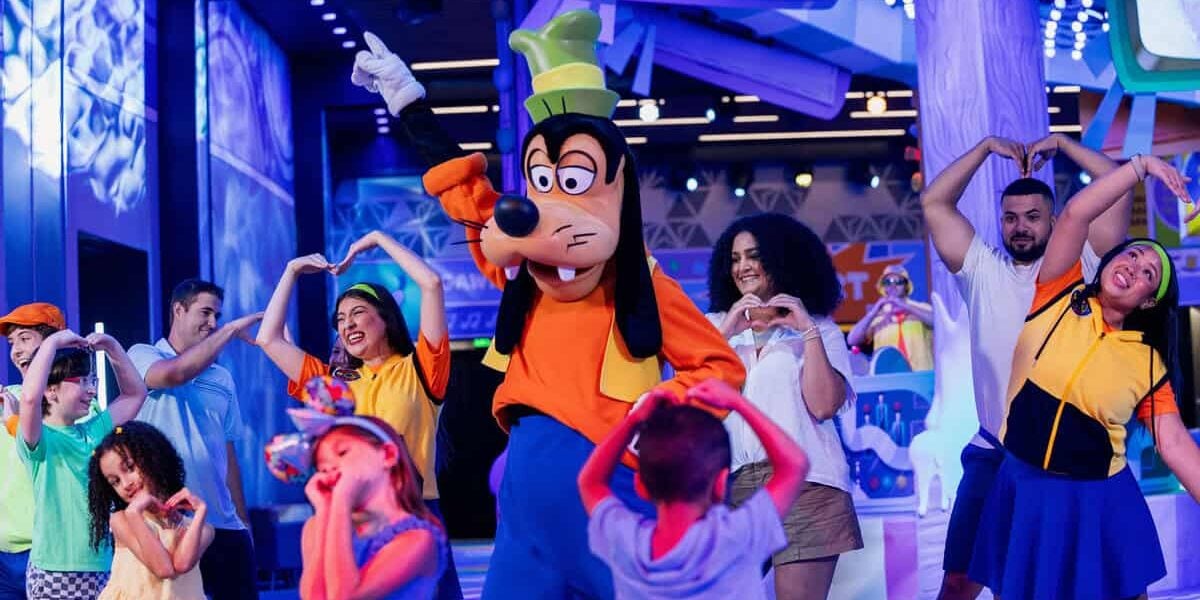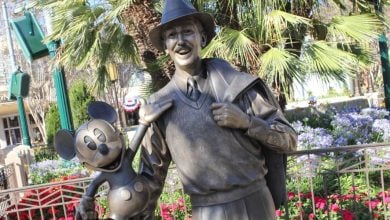A Nazi symbol was spotted within Disney World’s EPCOT park, leading to a heated discussion on freedom of speech and more.

EPCOT the Center of Attention: Nazi Symbol Leads to Outrage
EPCOT, known for world unity and celebration of culture, became the center of a troubling controversy on June 20 when something dark broke through the fantasy. A Reddit user posted a photo showing a man at EPCOT with what looked like a swastika tattooed on his calf—and the internet exploded.
The image, uploaded to the r/WaltDisneyWorld subreddit by user u/NervousNick, came with a caption filled with uncertainty and shock: “So, uh… is this guy I saw at EPCOT today what I think he is based on his tattoos?”
So, uh… is this guy I saw at Epcot today what I think he is based on his tattoos?
byu/NervousNick inWaltDisneyWorld
That single question launched a wave of outrage, disbelief, and painful emotion. Was this real? How did Disney let this happen? And what does it say about guest standards at one of the world’s most family-friendly destinations?

“Not Safe For Mickey”: Social Media Reacts
Hundreds of users chimed in, many expressing anger, heartbreak, and disgust. Some questioned whether the tattoo was authentic or stylized—but most focused on the fact that a symbol widely associated with hatred and genocide was out in the open for families and children to see.
“This isn’t a free speech issue,” one commenter said. “It’s about common decency in a public space filled with kids.”
Others, including Jewish guests, spoke out about how personally hurtful the image was. Several mentioned how triggering it felt to see something so hateful at a place built on joy, diversity, and inclusion.

Why It Matters: Policy, Safety, and the Disney Brand
Disney parks have a strict appearance policy that bans offensive clothing, symbols, or tattoos, but this incident suggests there may be gaps in enforcement. With so many guests entering the parks daily, it raises the question: are Disney’s checks enough?
Disney does inspect bags and screen for weapons, but body art isn’t typically monitored unless it’s overtly visible and explicitly addressed by staff. So how did this guest make it into the park without any intervention?
Theme parks are private property, meaning Disney has every legal right to deny entry or ask guests to modify their appearance. But with no official comment yet from Disney, many are wondering: where’s the line, and who draws it?

The Bigger Picture: More Than a Tattoo
This isn’t just about one tattoo—it’s about what that symbol represents. With rising global tension and conflict, especially in the Middle East, emotions around hate symbols are especially raw. Guests expect Disney to be a place of safety and comfort, not confrontation.
Allowing imagery tied to hate, even unintentionally, sends a message that can damage the brand and traumatize visitors. For many, especially those with personal or familial ties to the Holocaust, seeing that symbol in such a setting is more than inappropriate—it’s deeply painful.

What Will Happen With EPCOT and Disney World Now?
Disney has not yet released a public statement on the incident, and it’s unclear if the guest was ever approached or asked to cover the tattoo. But the backlash is loud and growing.
With more photos circulating online and guests demanding action, Disney may soon be forced to clarify or tighten its guidelines around visible tattoos and offensive imagery.
Can Disney maintain its reputation as a safe haven for all if it allows symbols of hate through its gates? Or is it time for a policy overhaul?
For a place that calls itself “The Most Magical Place on Earth,” even one unchecked moment can break the illusion—and the trust of the families who walk through its doors.






Yes, this is disturbing. Unfortunately they can’t see everything all the time. Once discovered, it should have been dealt with.
We were in such turbulent times that make everyday life more challenging. If the person was not addressed by the Mickey police, then that is completely unacceptable. It’s horrible that such an offensive symbol is even on a person, much less displayed to the public.
It should have been reported to a cast member. Cast should have asked him to cover it or leave. No different than their dress code.